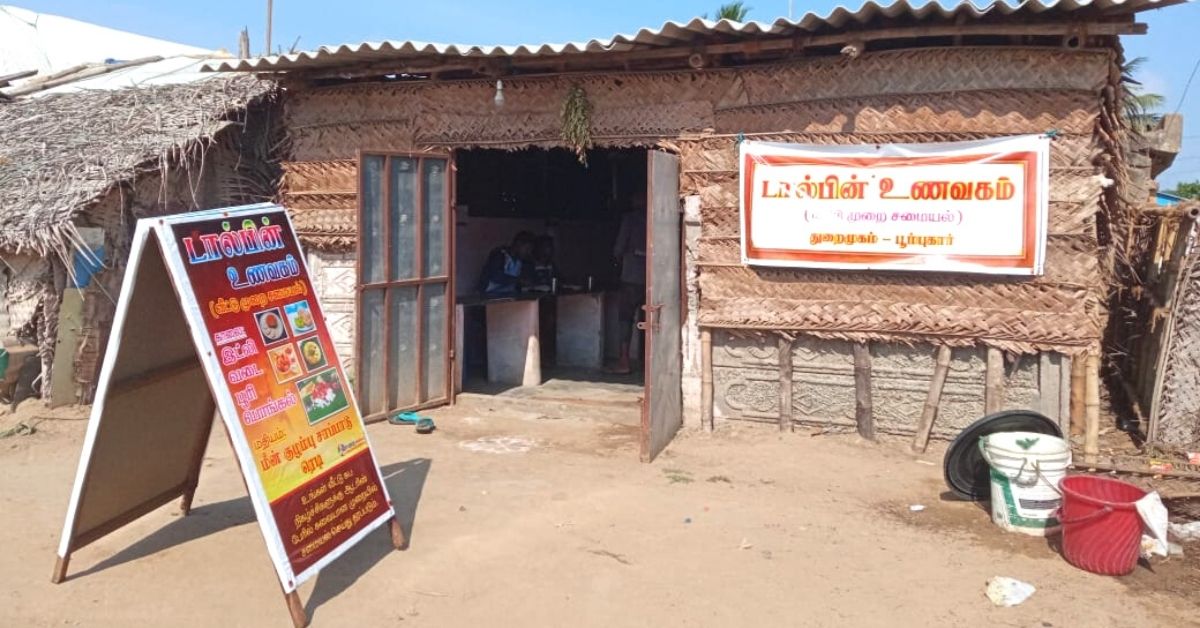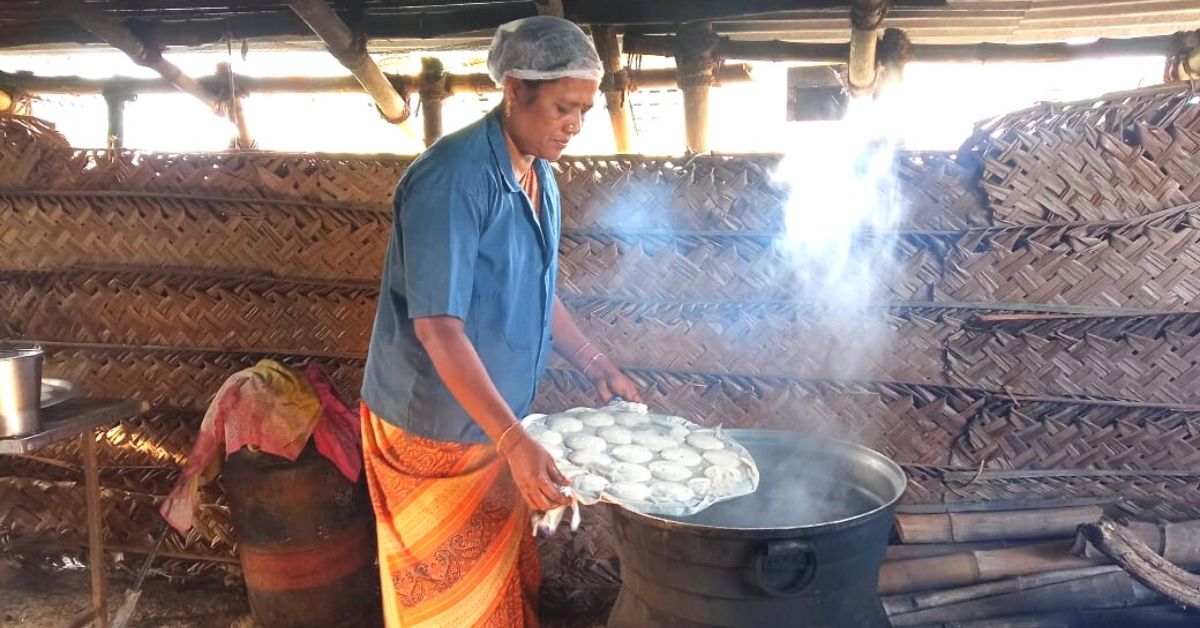In 2016, Stella Gracy was among the many women in Tamil Nadu’s Poompuhar village who earned a living by selling dry fish. Her income varied between Rs 150 and Rs 250 a day.
Her husband, a fisherman, earned Rs 8,000 to Rs 10,000 a month. “If the catch was good, he would earn more. But the income was unstable, as everything depended on the catch and market demands. At times, my husband would return empty-handed for a week or two at a stretch,” Stella recalls.
She says that her mentor, Krishnan sir, who worked at the M S Swaminathan Research Foundation, played a crucial role in changing her life. He made repeated attempts to motivate all fisherwomen in the area to start a catering business. “He always told us that we should band together to start a business and become financially independent,” Stella says.
Tired of the financial struggles to meet daily expenses and the cost of her children’s education, the 35-year-old discussed the idea of opening a restaurant with ten women in her group. Five agreed.
Today, their business, Dolphin Restaurant, has taken off successfully, earning them Rs 10,000 each per month.
Setting up business in a male-dominated area

Speaking with The Better India, Stella says she considered starting a pickle business made from ginger, prawns, fish and tomato. But the proposal of a restaurant became more convincing as there were no eateries in the vicinity that offered quality food, she adds.
Stella and her business partners Uma, Silvarani, Rajkumari, Geetha and Saroja developed a robust business plan. They also chose a place near the harbour as it promised heavy footfall. “The fishermen, tourists, fish sellers and others all passed through the location, which made it a commercially viable location,” she adds.
However, there was only one problem – women do not run restaurants in the village.
When the women sourced a loan of Rs 1 lakh from a micro-finance company to buy equipment, the word spread, and residents of the area began criticising them.
The village stigmatised their move, questioned their image in society, and doubted their ability. Moreover, the harbour area was male-dominated frequented by addicts and alcoholics, where brawls were common.
“But we had the confidence and support of our husbands on our side. They asked us to be careful and follow necessary precautions,” Stella says, adding they named the restaurant Dolphin as the sea creature is unique and exotic.
The women leased a place, set up a structure made from bamboo, and started offering idli, puri, pongal and vadai for breakfast and fish curry, sambhar, rasam, curd and veg curry for lunch. The food is served from 7 am onwards, and the restaurant closes at 6 pm. From buying supplies to cooking and serving orders, the five women distribute all responsibilities and run the show, making it the first all women-run restaurant in the village.
As the business settled, the taste of their food became popular and began receiving appreciation. “People who criticised us earlier started admiring our courage. Along with the daily business, we started receiving orders for family events, weddings, funerals and birthdays,” says Rajkumari.
She adds that their idli sambar, puri, fish curry and Vatha Kuzhambu, a spicy vegetarian curry, are the most popular.
The women say that the venture earns them over Rs 50,000 a month and has improved their lifestyle, earned them respect in society, and helped them support their family.

Silvarani says, “Before the restaurant, I struggled with finances and depended on my husband even for small amounts of money. But nowadays, I spend money from the earnings to pay my children’s tuition fees, buy ration for home, repay loans for vehicles, and even have the capacity to bear additional expenses for family functions.”
She adds that she pitches in on days when her husband runs out of money or has no income. “We balance our expenses, so there is no burden on a single person,” the 36-year-old explains.
Uma says that becoming financially independent has earned her respect within her family as well as in society.
“Men do not intend to respect their wives and consider them inferior as they do not contribute to earning money,” she says. “But I began supporting our child’s college fees and contributed to build a house from my earnings. My husband started respecting me more. There are no arguments over money at home anymore. Apart from my husband, the women in the neighbourhood also feel proud and respect me,” Uma says.
Creating a new image in the society
Despite all the success and goodwill earned, the women continue to face challenges. “Miscreants often come here. Once in 2019, there was a brawl between two people. The fight became physical, and the men were asked to leave,” says Saroja.
“There are also competitors who constantly try to negatively portray the business. They try to discourage customers by telling them about the poor food quality or that we earn a lot and do not require customers because of excess profits,” Saroja says.
But she says that once the customer visits and tastes the food, all doubts dissipate. Saroja says that men respect them by addressing them as sisters and never misbehave. “We have been able to create a new image in the society. Because of our success, men in the village have started respecting other women as well. They realise that women can achieve anything. The change is happening and visible to their eyes,” she adds.

During the COVID-19 lockdown, the women kept the business running for takeaways and deliveries. Looking at their successes, more women reach out to them and request for jobs, or seek guidance on starting a food business.
The women entrepreneurs plan to buy land and own a restaurant in future. They also expect some form of government support to ease their business operations.
Stella says the women have had only one regret. “We should have thought of the business earlier and started sooner. We would have been in a much better financial position and settled in life,” she adds.
Through her experience of running a restaurant in a male bastion, Stella believes that women can achieve anything they put their heart and mind into. “We have the potential to pursue anything with strong determination and willpower and become role models for others,” she adds.
Edited by Divya Sethu
No comments:
Post a Comment